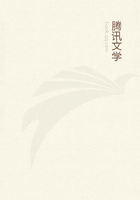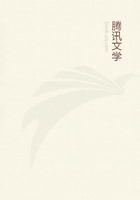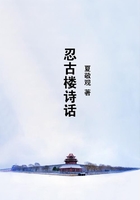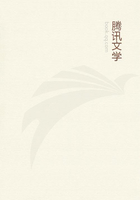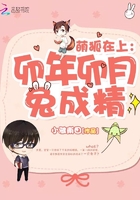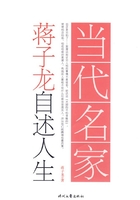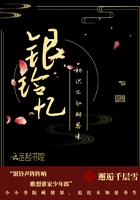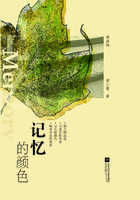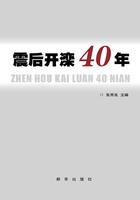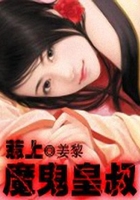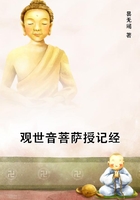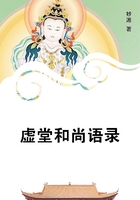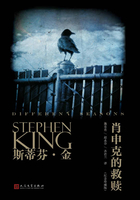Let the earth-bound man be handsome and powerful and rich, and so apt to this world that he may rule the entire human race: still there can be no envying him, the fool of such lures.Perhaps such splendours could not, from the beginning even, have gathered to the Sage; but if it should happen so, he of his own action will lower his state, if he has any care for his true life; the tyranny of the body he will work down or wear away by inattention to its claims;the rulership he will lay aside.While he will safeguard his bodily health, he will not wish to be wholly untried in sickness, still less never to feel pain: if such troubles should not come to him of themselves, he will wish to know them, during youth at least: in old age, it is true, he will desire neither pains nor pleasures to hamper him; he will desire nothing of this world, pleasant or painful;his one desire will be to know nothing of the body.If he should meet with pain he will pit against it the powers he holds to meet it; but pleasure and health and ease of life will not mean any increase of happiness to him nor will their contraries destroy or lessen it.
When in the one subject, a positive can add nothing, how can the negative take away?
15.But suppose two wise men, one of them possessing all that is supposed to be naturally welcome, while the other meets only with the very reverse: do we assert that they have an equal happiness?
We do, if they are equally wise.
What though the one be favoured in body and in all else that does not help towards wisdom, still less towards virtue, towards the vision of the noblest, towards being the highest, what does all that amount to? The man commanding all such practical advantages cannot flatter himself that he is more truly happy than the man without them:
the utmost profusion of such boons would not help even to make a flute-player.
We discuss the happy man after our own feebleness; we count alarming and grave what his felicity takes lightly: he would be neither wise nor in the state of happiness if he had not quitted all trifling with such things and become as it were another being, having confidence in his own nature, faith that evil can never touch him.In such a spirit he can be fearless through and through; where there is dread, there is not perfect virtue; the man is some sort of a half-thing.
As for any involuntary fear rising in him and taking the judgement by surprise, while his thoughts perhaps are elsewhere, the Sage will attack it and drive it out; he will, so to speak, calm the refractory child within him, whether by reason or by menace, but without passion, as an infant might feel itself rebuked by a glance of severity.
This does not make the Sage unfriendly or harsh: it is to himself and in his own great concern that he is the Sage: giving freely to his intimates of all he has to give, he will be the best of friends by his very union with the Intellectual-Principle.
16.Those that refuse to place the Sage aloft in the Intellectual Realm but drag him down to the accidental, dreading accident for him, have substituted for the Sage we have in mind another person altogether; they offer us a tolerable sort of man and they assign to him a life of mingled good and ill, a case, after all, not easy to conceive.But admitting the possibility of such a mixed state, it could not be deserved to be called a life of happiness; it misses the Great, both in the dignity of Wisdom and in the integrity of Good.The life of true happiness is not a thing of mixture.And Plato rightly taught that he who is to be wise and to possess happiness draws his good from the Supreme, fixing his gaze on That, becoming like to That, living by That.
He can care for no other Term than That: all else he will attend to only as he might change his residence, not in expectation of any increase to his settled felicity, but simply in a reasonable attention to the differing conditions surrounding him as he lives here or there.
He will give to the body all that he sees to be useful and possible, but he himself remains a member of another order, not prevented from abandoning the body, necessarily leaving it at nature's hour, he himself always the master to decide in its regard.
Thus some part of his life considers exclusively the Soul's satisfaction; the rest is not immediately for the Term's sake and not for his own sake, but for the thing bound up with him, the thing which he tends and bears with as the musician cares for his lyre, as long as it can serve him: when the lyre fails him, he will change it, or will give up lyre and lyring, as having another craft now, one that needs no lyre, and then he will let it rest unregarded at his side while he sings on without an instrument.But it was not idly that the instrument was given him in the beginning: he has found it useful until now, many a time.
FIFTH TRACTATE.
HAPPINESS AND EXTENSION OF TIME.
1.Is it possible to think that Happiness increases with Time, Happiness which is always taken as a present thing?
The memory of former felicity may surely be ruled out of count, for Happiness is not a thing of words, but a definite condition which must be actually present like the very fact and act of life.
2.It may be objected that our will towards living and towards expressive activity is constant, and that each attainment of such expression is an increase in Happiness.
But in the first place, by this reckoning every to-morrow's well-being will be greater than to-day's, every later instalment successively larger that an earlier; at once time supplants moral excellence as the measure of felicity.
Then again the Gods to-day must be happier than of old: and their bliss, too, is not perfect, will never be perfect.Further, when the will attains what it was seeking, it attains something present:

